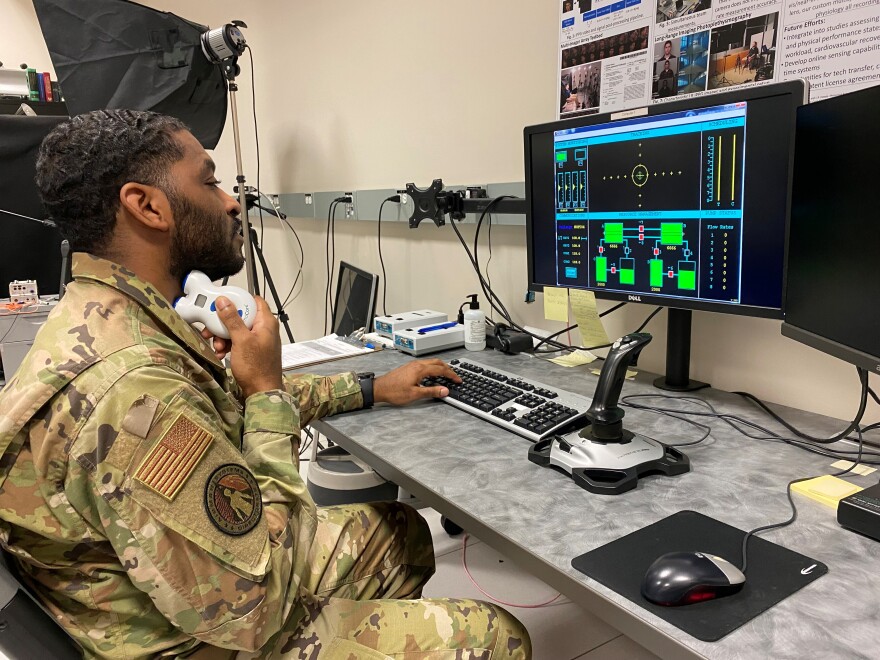According to researchers at Wright-Patterson Air Force Base, a handheld device approved to treat migraines appears to also boost alertness for the sleep deprived up to one full day after its used.
GammaCore delivers electrical stimulation to multiple branches of the vagus nerve, similar to the TENS sensation people might be familiar with in physical therapy.
At the Air Force Research Laboratory (AFRL) Biomedical Engineer Andy McKinley, Ph.D., and Psychologist Lindsey McIntire, Ph.D., are studying neuromodulation and how the use of it might extend the alertness of military personnel.
Just as a different technology, transcranial direct current stimulation (TCDS), was showing promise, the researchers realized gammaCore might be easier to use and take less than a third of the time to administer.
McIntire, who works for Infoscitex, was sceptical. "You always have that dread it's not going to work and you've done all this time and money," he says. "So I was happily surprised. I found it kind of amazing that with TDCS - the one on the head - we dosed that for 30 minutes and this is only six. And so I think that's kind of where my reservation was - really only six minutes?"
In a study group of 40 Air Force personnel who stayed awake for 34 hours, half got the gammaCore stimulation and the other half had a sham device that looked like the real machine. "The people that got active stimulation had higher levels of multi-tasking, higher levels of arousal and faster reaction time," according to McIntire.
In addition, they reported less fatigue and the stimulation boosted alertness for up to 20 hours.
More study is needed and gammaCore and other devices like it may have additional applications.

"We've got other studies using the same device looking at accelerated learning," McKinley explains. "In those studies we see benefits in other aspects of mood. We see that they are better able to do the tasks that they are tasked with doing. They feel happier. Their overall mood is better. They feel less nervous, less worried. And actually there are groups looking at this technology as an intervention for post traumatic stress disorder."
It's unclear if using gammaCore has any addictive properties. McKinley says there should be guidelines on the number of doses a day a person should get it.
The gammaCore treatment is not cheap, costing hundreds of dollars a month. But the Air Force is working with the company to develop a device that would be a one-time cost of about $500.
The research is published in the June 10 online journal Communications Biology.



